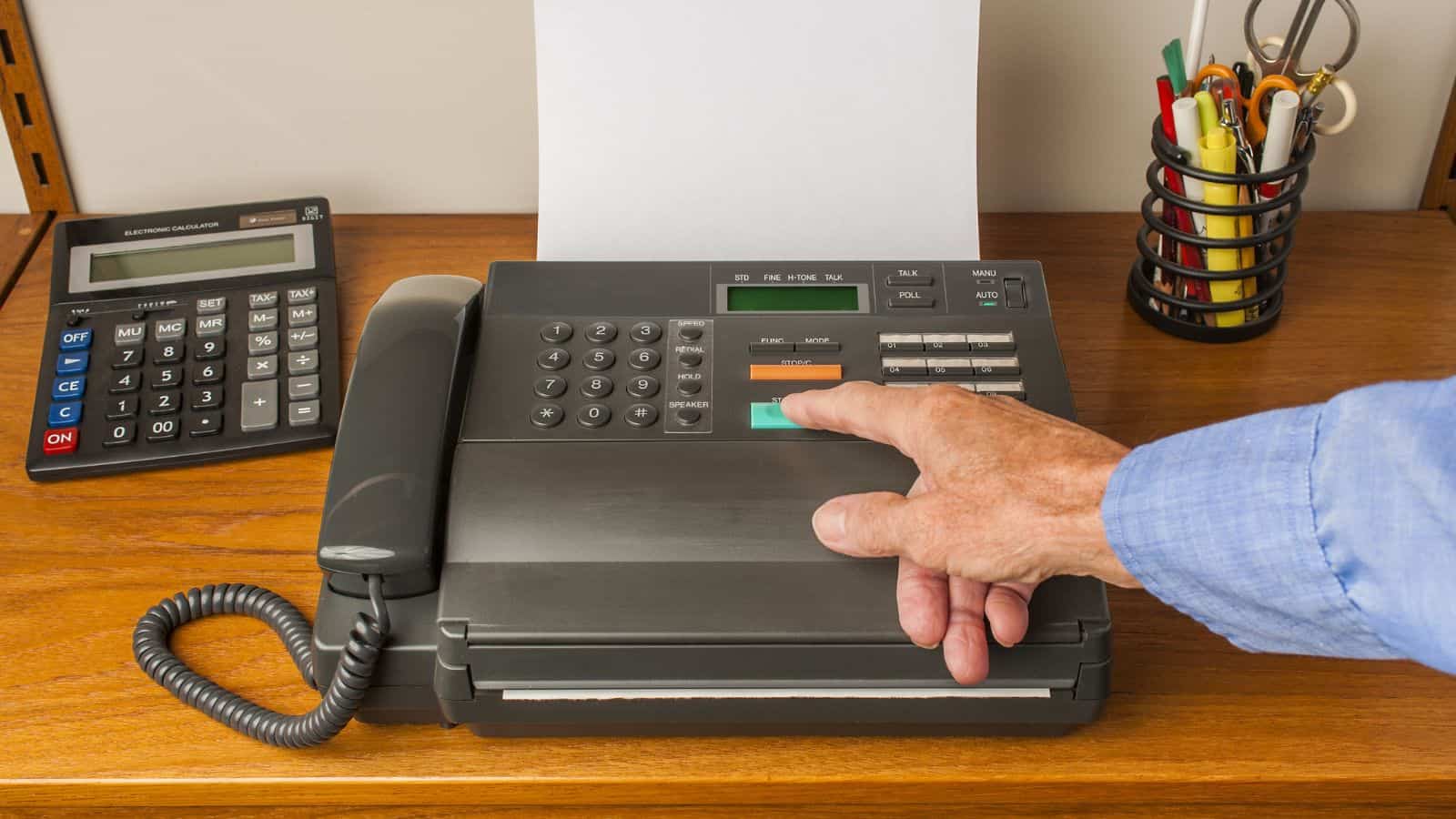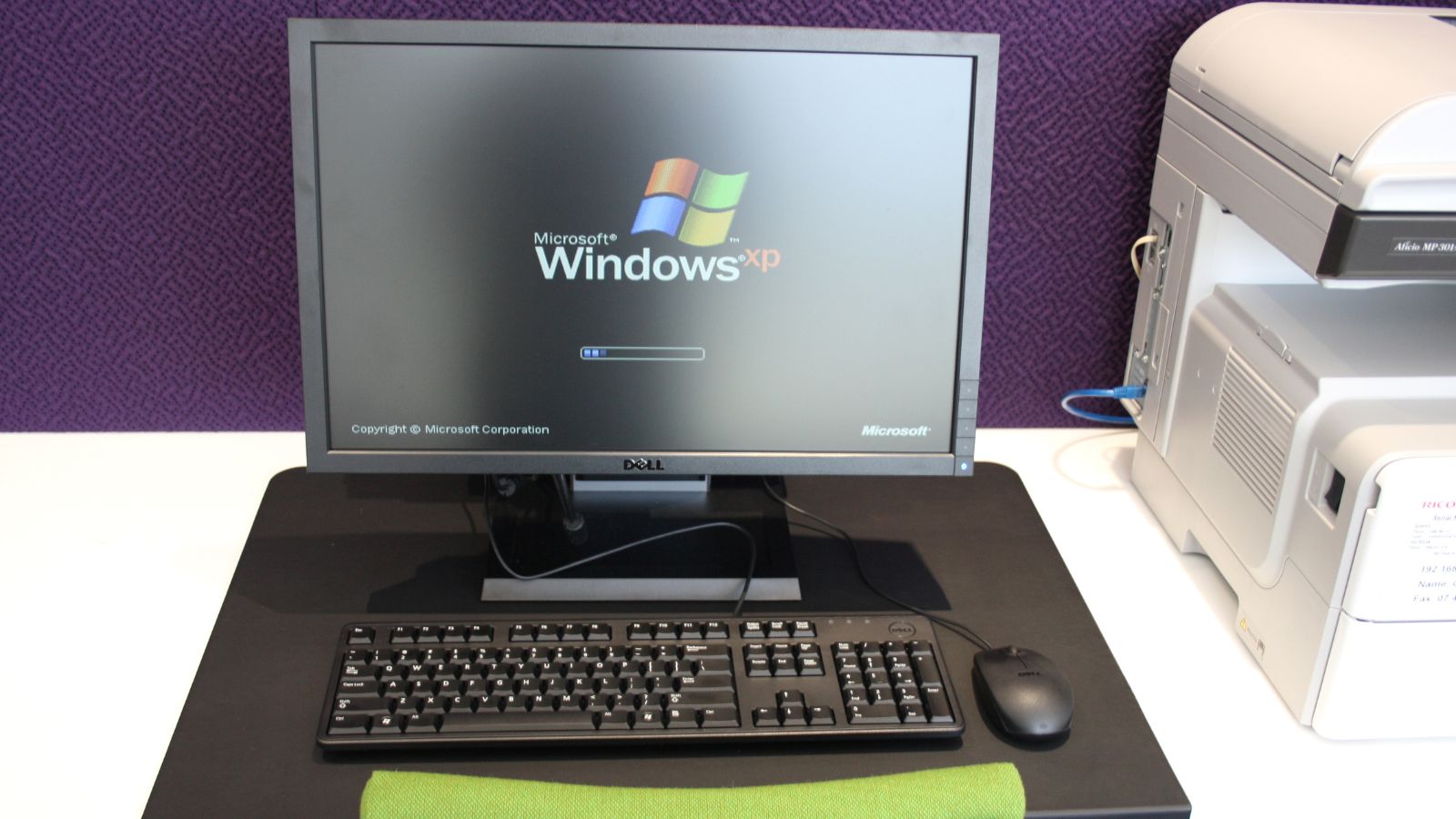If anything is constant in life, it’s change, and therefore, it’s important that we keep up with it in the workplace. Jobs change significantly every decade or so, and this couldn’t be more true in today’s rapidly changing world. So, to ensure that you don’t get left behind in your career, here are 19 signs your job is outdated in modern Britain and that it might be worth future-proofing your skill sets.
Heavy Reliance on Fax Machines

You might find this surprising, but some jobs in the UK still use fax machines despite them almost completely disappearing from mainstream offices. In fact, the BBC reports that even the NHS still used them until recently. For most companies, they’ve long since been replaced by digital communication tools such as email, messaging, and VoIP calls. Naturally, this means that if your job still requires frequent faxing, it may indicate that your role is behind the times.
Limited or No Digital Skills Required

These days, just about any job, even purely physical jobs such as manual laborers or doctors, rely heavily on digital technology. There really is no avoiding it unless, of course, you have an old-fashioned job. So, if your job doesn’t require any digital skills at all, your workplace clearly hasn’t evolved in a very long time.
Filing Cabinets Full of Paper Documents

Just like fax machines, paper-based filing systems have been almost completely eradicated in modern workplaces, with digital filing systems being far more convenient, easy to organize, and environmentally friendly. However, some people still do their filing manually, so if this sounds like you, your role is most definitely out of date.
Regular Use of Outdated Software

Another sign that your job is outdated is if you work with software that hasn’t seen updates in years. Modern businesses typically use the latest versions of tools to ensure efficiency and security. Meanwhile, those who have refused to change with the times still use a lot of old technology, such as Windows XP instead of Windows 10 or Microsoft Word instead of Google Docs.
Lack of Remote Work Options

Nowadays, just about every field of work has the option to be adapted for remote work, with this even becoming a standard expectation in many professions. If this sounds strange to you and you have never been offered such opportunities by your boss, that might be an indicator that the role is not in line with current employment trends.
Job Centered Around Manual Data Entry

While you might think that data sounds technological and futuristic, manual entry really isn’t; in fact, it has been replaced by data entry automation tools for years. This comes with a lot of benefits as it reduces the need for human input, making our jobs much more fulfilling and less repetitive. Therefore, if your job still involves repetitive data entry, it might be a sign that you should talk to your employer about futureproofing their business.
Absence of Social Media Engagement

If you’re not already on social media in your personal life, you must have been living under a rock, and it’s exactly the same in the business world. Without social media, modern businesses would struggle to keep up with today’s dynamic marketing strategies, so if you work in a marketing role without any form of social media, your company is obviously stuck in the early ‘00s.
Customer Service via Landline Phones Only

Thanks to the convenience and flawless connectivity of our smartphones, hardly anyone uses landline phones anymore–except for old-fashioned businesses, that is. While modern companies are using their smartphones, VoIP, Slack, chatbots, social media, and many other innovative communication channels, some businesses are reluctant to change, leaving them in the stone age with their landline telephones.
Lack of Emphasis on Cybersecurity

There’s no denying that cybersecurity is confusing, but it’s also very important in order to protect your job and the company as a whole. Therefore, if your role doesn’t prioritize cybersecurity measures, it’s a classic sign that it’s behind the times. Either your employer doesn’t have any digital infrastructure to protect in the first place, or they’re exposing themselves to serious risks by not protecting themselves from hackers, viruses, and data breaches.
Dependence on Traditional Mail

It probably won’t come as a surprise to learn that reliance on traditional mail for communication or transactions is dwindling in the business world, and once again, digital alternatives are the reason for this. The business world would probably fall apart overnight if it had to start relying on time-consuming snail mail once again, so if this is a common part of your job, it’s a clear sign that your job is old-fashioned.
Minimal or No Online Presence

Not having social media is one thing, but if your job doesn’t involve an online presence whatsoever, such as a basic website or Google Maps listing, you’re definitely working for a time capsule. Even small businesses had websites back in the ‘90s and early ‘00s so that just shows how outdated your job is.
Repetitive Manual Tasks Without Automation

We briefly touched on the importance of data entrance automation for modern businesses, but data isn’t the only place where it’s used. Modern automation and AI can automate all sorts of routine tasks, such as scheduling, copywriting, customer service, and more. So, if your role still relies on manual processes that could easily be automated, watch out–it might not be around for much longer.
Physical Time Clocks for Attendance

If you still rely on physical clocks to track your progress at work, that’s pretty old-school. Nowadays, companies rarely use such outdated tools and instead depend on digital timekeeping systems, which are often integrated with payroll software. This means that time-related admin is a breeze for such companies, whereas for you, dealing with it is likely a complex, time-consuming, and risk-prone process.
Focus on In-Person Meetings Only

Everyone can agree that in-person meetings are valuable, but if your job relies exclusively on them without incorporating any form of virtual meeting tools, it’s probably outdated. Video conferencing has become a standard in many industries, allowing for far more flexibility and efficiency. We can now have meetings with our colleagues and business partners all around the world, something that your employer is clearly missing out on.
Lack of Diversity in Communication Tools

As you may have gathered from our previous points on digital communication, it’s really not normal for a modern company to rely on a single communication channel–even if that’s a digital option. Instant messaging, cloud-based collaboration tools, VoIP video conferencing, and other cutting-edge communication systems are the norm now, so if your employer is still just using phone calls and perhaps the occasional email, they’re getting left behind.
Job Involves Extensive Travel for Basic Tasks

We previously stated that remote meetings are fantastic for bringing together the workforce even when they’re on other sides of the world, and a major benefit of this is that travel is no longer necessary. This works wonders for you and your employer’s time, energy, and finances, not to mention the positive environmental impact. So, if you’re still traveling for work, tell your employer to wake up because it’s the 21st century.
Infrequent Skill Development Opportunities

Any job that offers little to no opportunities for skill development or training is no doubt out of date. Continuous learning is essential to stay competitive in the job market, and that’s nothing new–it’s always been the case. Therefore, if your role doesn’t encourage or provide avenues for professional growth, it could be a sign that the job is not evolving with industry demands.
Fixed Working Hours Without Flexibility

Even if your employer is unwilling to allow you to work remotely, the very least they should be offering is flexible working hours. In the past, jobs always enforced rigid, fixed working hours without any flexibility and lots of overtime expected, but thankfully, we got past such toxic attitudes. So, speak to your boss about the prospect of having more flexible working hours, and if they refuse, it might be time to find a more future-proof employer.
Traditional Cash Handling

Finally, it’s pretty unusual for companies these days to deal primarily with cash, as it’s more expensive, time-consuming, and cumbersome to deal with than quick and easy digital transactions. For good or for bad, hardly anyone other than older people carries cash around with them anymore, so unless your audience is solely OAPs, your employer should definitely modernize their financial pipeline.

